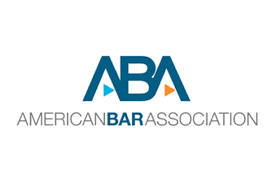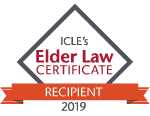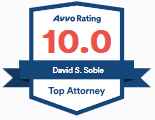When it comes to real estate or contracts, we’ll tell you what others won’t.
We Maximize the ERC for Small Businesses
Request your ERC Consult Today!
How The ERC Works

David Soble, Founding Attorney
Why Work With Us?
The ERC underwent several technical changes under four major pieces of legislation, including how to determine qualified wages, which employees are eligible, and more. Your business’ specific case might require more intensive review and analysis. After several different pieces of ground breaking laws, the ERC program is complex and might leave you with many unanswered questions.
We have decades of experience protecting small businesses. We can help make sense of it all. Our dedicated experts will guide you and outline the steps you need to take so you can maximize the ERC claim for your business.
Since 1990, David Soble has provided no nonsense legal advice to small businesses, banks, lenders and consumers alike, in the legal areas of finance and real estate, and contracts.
David Soble is a graduate of Michigan State University (’87) and The Ohio State University College of Law (’90). After you speak with David and members of his legal team, you will quicky understand what makes people from all over the nation and the world seek their practical legal and business advice.
ERC STATS
Proven Resources

US Small Businesses

Months Left

Estimated Transactions
Businesses failed 2021
Our ERC services include:
Thorough evaluation regarding your eligibility
Comprehensive analysis of your claim
Guidance on the claiming process and documentation
Specific program expertise that a regular CPA or payroll processor might not be well-versed in
Fast and smooth end-to-end process, from eligibility to claiming and receiving refunds


Our ERC specialists will interpret highly complex program rules and answer your questions, including:
How does the PPP loan factor into the ERC?
What are the differences between the 2020 and 2021 programs and how does it apply to your business?
What are aggregation rules for larger, multi-state employers, and how do I interpret multiple states’ executive orders?
How do part-time, Union, and tipped employees affect the amount of my refunds?
ERC FAQs
Frequently Asked Questions
Top ERC Program Questions
What is the Employee Retention Credit?
More specifically, employers eligible for the Employee Retention Credit can receive up to 50% of wages paid to their employees between the dates of March 13th 2020 and December 31st 2020 with a limit of $10,000 per employee.
The ERC was extended by the Relief Act of 2021 to 70% of an employee’s wages per calendar quarter per employee from January 1st 2021 until October 1st 2021, with a limit of $10,000 per employee per quarter.
What industries qualify for ERC?
Some industries that qualify for ERC include education, government contractors, healthcare, life science, hospitality, retail, non-profit, industrial, real estate, construction, technology, and more.
Self-employed individuals do not qualify for ERC. However, industries, where employees were retained due to their ability to work from home, are eligible.
How is the ERC calculated?
For 2020 wages, the Employee Retention Credit can pay you 70% of a single employee’s wages with a yearly cap of $10,000. For the same company of ten employees, you’d make $5,000 per employee for a total of $50,000.
What period does the program cover?
You can apply for refunds for 2020 and 2021 after December 31st of this year, into 2022 and 2023. And potentially beyond then too.
We have clients who received refunds only, and others that, in addition to refunds, also qualified to continue receiving ERC in every payroll they process through September 30, 2021, at about 30% of their payroll cost.
We have clients who have received refunds from $100,000 to $6 million.
How do I know if my company qualifies for the ERC?
A disruption in business operations beginning after February 15, 2020 and continued due to the coronavirus pandemic. This includes businesses that are fully or partially suspended by government orders or are unable to operate at normal capacity due to the pandemic.
or
A revenue decline. Your eligibility is largely based on your 2019 records. First, your business must have 500 or fewer employees in 2019 to qualify. Also, your company’s quarterly gross receipts in 2020 and 2021 must be at least 20% lower than the corresponding quarter in 2019. This is to prove your company was financially impacted by the Coronavirus lockdown.
On top of that, you must be a private sector or tax-exempt company that dealt with a partial or full shutdown of operations due to COVID-19.
You do not need a revenue decline to qualify, in fact, many businesses had a revenue increase and still qualified that experienced a disruption in business operations.
Can you still get the ERC?
You have a three-year deadline from the date of the original filing for which you’re hoping to get a retroactive refund.
Will ERC be extended?
With the passing of the Infrastructure Investment and Jobs Act (IIJA) in November of 2021, the ERC retroactively ended on October 1st of 2021. While you can still claim the tax credit you’re eligible for from January 1st 2020 through October 1st 2021, it is unlikely there’ll be future financial quarters where the ERC is offered.
When does ERC expire?
While the period covered by the ERC is over, it is not too late to retroactively receive your tax credit. You have three years after your initial tax filing to fill out Form 941-X. So, for those trying to claim their 2020 ERC, which they likely would have filed in early 2021 as part of their 2020 taxes, they have until the same date in 2024.
What is the difference between PPP and ERC?
The PPP stands for the Paycheck Protection Program. It is a Small Business Association-backed loan that helped workforces maintain their employees during the economic downturn of the Covid-19 shutdown. The PPP offers first loans, second loans and the potential for loan forgiveness.
These PPP loans are issued by private lenders or credit unions, although the backing of the SBA means, that as long as the loans are used correctly, the entire loan payment can be forgiven.
The ERC is a tax credit. This means it is not a loan and does not have to be paid back. Instead, a tax credit reduces your final tax bill, saving you money (or possibly making you money back with your tax refund) when tax season rolls around.
Do we still qualify if we already took the PPP?
Can you qualify for both the Paycheck Protection Program (PPP) and Employee Retention Program (ERC)?
However, the credits from the Employee Retention Program can only be used on wages that were not forgiven by the PPP—if the PPP already covered it, they are not eligible for the tax credit.
Do we still qualify if we did not incur a 20% decline in gross receipts?
-A government authority required partial or full shutdown of your business during 2020 or 2021. This includes your operations being limited by commerce, inability to travel or restrictions of group meetings.
-Gross receipt reduction criteria is different for 2020 and 2021, but is measured against the current quarter as compared to 2019 pre-COVID amounts.
Do we still qualify if we remained open during the pandemic?
– Experienced a decline in gross receipts by 20%, or
– Had to change business operations due to government orders
Many items are considered as changes in business operations, including shifts in job roles and the purchase of extra protective equipment.
Is the employee retention credit 50% or 70% of qualified wages?
However, the ERC was expanded by the Relief Act of 2021 and expanded again by the American Rescue Plan Act of 2021. This expansion not only extended the availability of ERC, but also added to it. For 2021 wages, business owners could claim 70% of wages per quarter with a cap of $10,000 per employee.
So, the credit is 50% of yearly wages per employee for 2020 and 70% of quarterly wages per employee for 2021.
Are Employee Retention Credits taxable?
However, the ERC will impact your income tax return. Any employer tax credits will result in a reduction in wages that matches the amount of the credit. The impact of this credit needs to be reflected in the year it was received. So, if the reduction was for 2021, your 2021 tax return must reflect these post-credit wages.
What is considered a 'disruption'?
How do I claim employee retention credit on Form 941?
The 941-X form is available on the IRS website. The form leads you through the different information you need to provide. Be ready to report all relevant wages and income tax to receive the ERC. The form is long and complex, so be sure to give yourself plenty of time to fill it out and ensure the information is correct to avoid an ERC scam—there’s a lot of money on the line, after all.
How long does it take to get the Employee Retention Credit?
This is a historical event. When will you claim your refund?
Congress has finally passed favorable legislation exclusively for SMALL business owners. It’s simple to get started.
We're one of the best reviewed law firms in the state.
Don't take our word for it! See hundreds of our reviews on Google, AVVO, Martindale-Hubbell and Linked In.
Podcast
Our Latest Podcasts
Soble Podcast Episode: I am Magnavox
Soble Podcast Episode: It Takes a Comma
Soble Podcast Episode: Hired the Wrong Person
Soble Podcast Episode: Information is Not Experience
Soble Podcast Episode: Flight of the Concordski
Soble Podcast Episode: And That's the Way It Is, Mr. Cooper
Soble Podcast Episode: Why Hesitate?
Soble Podcast Episode: Fortunes and Misfortunes of a Village
Soble Podcast Episode: Not Always As They Seem
Soble Podcast Episode: Chariots and Rocket Boosters
Soble Podcast Episode: Cleveland '86
Soble Podcast Episode: The $100K Beard
Soble Podcast Episode: The Potter's Apprentice
Soble Podcast Episode: Replacing the Brakes
Soble Podcast Episode: The Worst Kind of Art
Soble Podcast Episode: There's All Types of Help
Soble Podcast Episode: The Chaos of My Sock Drawer
Soble Podcast Episode: The 6 1/2 Foot Scowl
Soble Podcast Episode: Turning Point in History
Soble Podcast Episode: Decisions Based on Fear
Soble Podcast Episode: Fasta Pasta
Soble Podcast Episode: Just Don't Go There
Soble Podcast Episode: Don't Celebrate Too Soon
Soble Podcast Episode: Meanwhile in the Town of Popperville
Soble Podcast Episode: America's Most Trusted Professionals
Soble Podcast Episode: Ancient Walls
Soble Podcast Episode: The 24-Hour Rule
Soble Podcast Episode: Takin' it Easy and Other Mistakes
Soble Podcast Episode: Sarah, Pumpkin Queen
Soble Podcast Episode: Don't Stop Pedaling
Soble Podcast Episode: Kmart Fish and the Blue Acara
Soble Podcast Episode: Carthage and Rome
Soble Podcast Episode: An Empty Vessel
Soble Podcast Episode: Expectations vs Reality
Soble Podcast Episode: Most Dangerous Day in Modern History
Soble Podcast Episode: It's in the Small Details
Weekly Q & As with David Soble
Request your ERC Consult Today!













